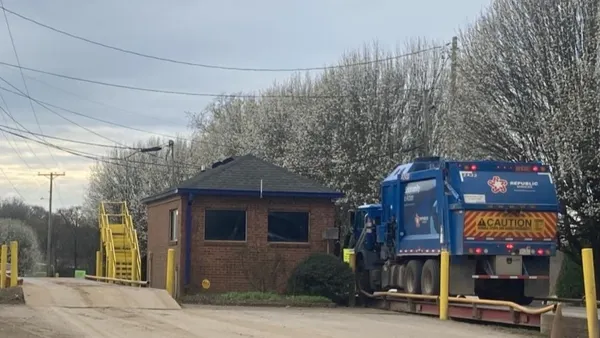CORRECTION: An earlier version of this story incorrectly stated the number of WTE sites across New Jersey.
Dive Brief:
- The Atlantic County Utilities Authority (ACUA) has already begun planning for what will happen when it runs out of landfill capacity in 2026. Waste-to-energy seems to be the only answer.
- ACUA President Rick Dovey said he doesn't expect any additional landfills to be sited in Atlantic County or anywhere else in the state. The county's only alternative would be exporting waste to Pennsylvania, Ohio, or possibly even farther.
- A deal to build a small-scale plasma gasification plant fell through about three years ago. ACUA plans to ask for proposals next year to build a new one.
Dive Insight:
ACUA only received permission to begin operating its landfill in the late '90s after promising to work exclusively at night. The site's close proximity to the Atlantic City International Airport raised concerns about birds from the landfill interfering with planes, and odors were also a factor. Because of this requirement, crews work from 7 p.m. to 4 a.m. at what officials think may be the country's only nighttime landfill.
This area's sensitivity to waste-related environmental issues would seem to be a bad fit for a waste-to-energy facility, but the technology is actually quite popular in New Jersey. According to the Energy Recovery Council, the state has five facilities, many of which are operated by Covanta.
The county's interest in gasification is slightly surprising due to its higher start-up costs and shorter track record. Air Products & Chemicals Inc. shut down its plasma gasification operations in England last month due to efficiency issues. Though despite these issues, gasification is still seen as a promising option for the future and its market is expected to grow.









